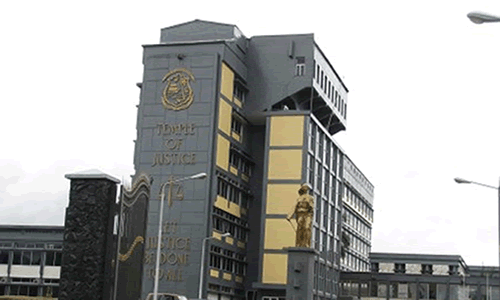Bong Traditional Leaders sign agreement with justice actors

Traditional leaders and Justice Actors in Bong County have signed a memorandum of understanding in an effort to collaborate and ensure that citizens access justice in the County.
Our correspondent says the signing took place recently in Gbarnga under the arrangement of the Bong County Security Council with support from Mitigating Local Disputes in Liberia, a U.S. Department of State-funded program.
The signing ceremony, held recently at the Administration Building in Gbarnga, was attended by magistrates, the police, traditional leaders such as zoes and chiefs, members of the media, and officials of Mitigating Local Disputes in Liberia.
The Bong County Security Council was launched in 2015 to allow the Liberian government to decentralize security governance in the country.
The co-chairperson of the Bong County Security Council, Frederick Nepay says the signing of the MOU followed a recent mediation meeting in the county where traditional leaders and justice actors raised issues of interferences with the execution of their respective duties.
“We are in this room today because we understand that small, small problems were coming among the court people, the police people, and the traditional people,” says Nepay, who is also the head of the police detachment in Bong.
He notes that the agreement will help the different actors clearly understand their roles, responsibilities, and limitations in ensuring that citizens have access to justice and that there is limited interference caused by different stakeholders intervening in cases.
Several months ago, Bong witnessed several disruptions of justice where magistrates were chased out of courts by traditional leaders who used traditional masked dancers to intimidate the judicial system.
The latest happened in Foequelleh where traditional leaders forcefully prevented the magistrate on duty from ruling in a case involving a local zoe – a high ranking traditional leader – and another person.
The traditional leaders at the time claimed that the magistrate did not have the authority to judge a zoe.
[bsa_pro_ad_space id=1]
The justice actors comprising of magistrates, police and traditional leaders, among several counts in the MOU, agreed that no traditional leader should interfere with justice actors in the discharge of their duties in keeping with the law.
They agreed that all those considered to be zoes, traditional herbalists, magicians, or otherwise must be duly registered with the offices of the native superintendent in the county.
They also indicate that all cases that are criminal in nature should be void of traditional interference by traditional leaders, and that such cases should be reported to the police by traditional leaders.
The MOU also prevents the establishment of Poro and Sande traditional schools during academic instructional periods and bans forceful initiation of members to the various school.
The agreement further recommends “constant engagement” between justice actors and traditional leaders to resolve issues of concerns with regard to their different roles in the justice system.
In line with the National Security and Intelligence Act of 2011, the Bong County Security Council is required to hold monthly meetings, during which time, security information earlier collected are shared and managed by key stakeholders of the county.By Joseph Titus Yekeryan in Bong –Edited by Winston W. Parley




















